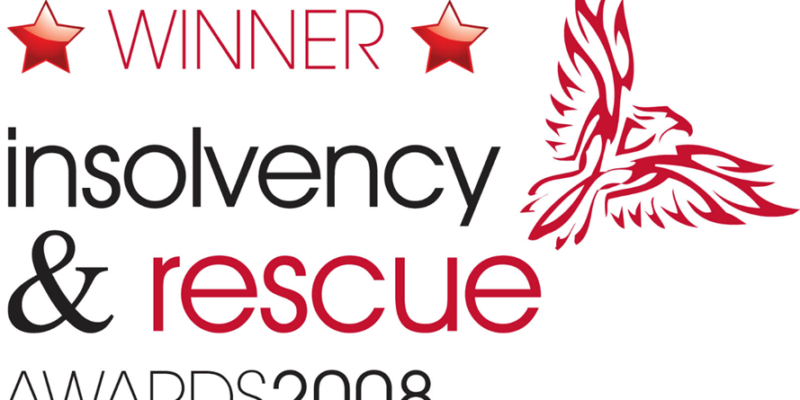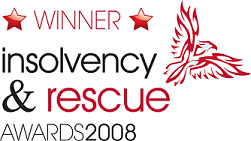What would your future-you have to say to you?
The no-pants guide to spending, saving, and thriving in the real world.
What would your future-you have to say to you?
This is a continuation of the budget series. See these posts for the history of this series.
This time, I’m looking at our discretionary budget. These are the things that don’t have a fixed cost. Any individual item is largely optional, and, ultimately, we don’t track these purchases closely. At the beginning of the month, I pull this money out of the bank in cash, except for 1 category. When the discretionary budget is gone, it’s gone.
We’ve now addressed out entire budget, including what we can do and have done to keep our costs under control. Looking back, I don’t see too many cuts I’ve missed.

 Frequently regarded as an indication of personal failure, bankruptcy is still today widely considered a highly sensitive topic. Many will even feel uneasy speaking about their debt problems with close relatives and friends. If you, too, are facing serious debt issues and are in need of help, rest assured you are not the only one afraid of sliding into bankruptcy. In fact, thousands of households in the UK are threateningly close to insolvency and most are experiencing the exact same feelings of shame and despair. This perfectly understandable reaction has, meanwhile, unfortunately overshadowed the fact that there are hands-on practical steps especially designed to help you resolve your debt situation.
Frequently regarded as an indication of personal failure, bankruptcy is still today widely considered a highly sensitive topic. Many will even feel uneasy speaking about their debt problems with close relatives and friends. If you, too, are facing serious debt issues and are in need of help, rest assured you are not the only one afraid of sliding into bankruptcy. In fact, thousands of households in the UK are threateningly close to insolvency and most are experiencing the exact same feelings of shame and despair. This perfectly understandable reaction has, meanwhile, unfortunately overshadowed the fact that there are hands-on practical steps especially designed to help you resolve your debt situation.
There is a good reason why addressing the issue of bankruptcy has an urgent ring to it. Recent statistics indicate a steady rise of individual company insolvencies in the UK, particularly since the 1990s. According to the British Insolvency Service, the rate of bankruptcy on an individual level has risen from a total of 24,441 in 1997 to staggering 106,645 in 2007 in England and Wales. Alarmingly, the peak doesn’t seem to have been reached yet. As respected online-service ‘This is Money’ reports, ‘record numbers of people were declared insolvent in England and Wales’ in 2010, further noting that ‘an all-time high of 135,089 people were declared insolvent in 2010—0.7% up on the total for 2009.’ As you can gather from these numbers, you are certainly not alone with your debt problems: Around 140,000 adults are facing bankruptcy as a direct consequence of mishandling their debt issues, which translates to 385 new cases per day. It has already been pointed out that ‘the number of victims will be enough to fill both the London 2012 Olympic stadium and the Emirates Stadium.’
So, if you’re facing bankruptcy, there’s no need to feel ashamed. By taking an active stance and addressing your debt issues, you may even be able to avert insolvency altogether. With years of experience and several distinctions to our credit, the Debt Advisory Line have established themselves as leading experts in the field of debt management. We’ve already helped thousands of individuals and households who thought bankruptcy was their only option. Settling debt issues is our forte – and you shouldn’t settle with anything less.
This post brought to you by Debt Advisory Line.
The idea of a credit card is appealing. You don’t have to have the money to pay for things; you can just use the card. It creates instant gratification and you start to get used to the idea of getting what you want when you want it. Unfortunately, this can be a disaster waiting to happen.
If you get in over your head and begin to negatively affect your credit rating, it is not the end of the world. By looking at things like bad credit credit cards at Money Supermarket you can start to make things right again. Watch out for these pitfalls that could cause you to stumble into a bad credit card situation.
Enticing Rewards
You see the commercial or advertisement online and reward credit cards make it seem like you will be drowning in points that can be redeemed for airline miles or gift cards. Initially, you may think that this is a great reason to sign up for a card. Then, you begin to use the card often in order to earn points.
The problem comes when you start spending just to get the rewards and you can’t or don’t make payments to return to a zero balance every month. You may end up with a hefty annual fee on top of everything else. Don’t let the temptation of getting a reward create a problem with your credit score.
Maxing Out the Credit Card
When someone hands you $5,000, you will be tempted to spend it. Why not enjoy the new money? The problem is that a $5,000 credit card balance needs to be paid back. Don’t fall into the trap of spending the entire line of credit immediately.
If you do run into some financial difficulty or you really need a credit card for something, you will have nothing left to use. If you go over the limit, you can be sure that there will be some fees that come along with it. Use it wisely. Charge something and pay it off.
Skipping a Payment or Paying Late
Once you have a credit card, everything is going to affect your credit score. If you miss a payment or pay late, you can be sure that this is going to show up against you. Aside from the damage to your credit score, most credit cards come with a substantial penalty in the form of a late fee that gets tacked onto the next payment.
Always pay on time. Pay in early if possible. Keeping up to date with your credit card will show up positively on your credit rating.
When Problems Arise
Even if you do your best to avoid these pitfalls, sometimes financial problems can be unavoidable. An unexpected emergency requires you to max out the card. You run into a problem at work and lose your main source of income.
If you see that your credit is starting to decline, it is always possible to build that score back up. Start over using bad credit credit cards to make a positive impact on your credit score. With this scenario, you get an opportunity to once again avoid these pitfalls and improve your credit.
The Bretton Woods Conference started the system now known as fixed rate exchange. After the 1944 conference, theUnited Statesattached dollars to gold with one ounce of
gold equal to $35.
The process changed in the 1970s, due to problems with inflation and currencies from other countries. The financial system of any country relates to the law of supply and demand.
As the demand for currency increases, the system undergoes appreciation. When the demand for currency drops, the system goes through depreciation. A country can devalue its currency based on lower demand.
For example, a country might equate 20 of its own currency for one American dollar. After the market fluctuates, the country devalues its money, making 40 of its currency equal to a single American dollar.
Devalued currency occurs in theUnited Statesduring periods of debt or recession. The government prints more money, which is worth less.
The country must have a way of covering its debts, such as with gold. If the country lacks adequate funds, the paper currency is essentially worthless.
A good example of this occurred during the American Civil War. The Confederates printed its own Confederate money. Once the war ended, the devalued money was worth nothing. Even today, the money only has a slight historical value.
American debt rises when the country goes through a recession or depression.Franceunderwent such a change when the country increased minimum wages and benefits for the working class.
The national debt continued rising and the country had no funds to pay back that debt. Fortunately, comparison sites like MoneySupermarket can help you find the best ways to save and make the most of your money when the value of American dollars drops.
Devalued dollars affect you because it reduces the amount of goods and services you can afford. Even simple things, such as buying car insurance or saving money takes more than it did before.
Devalued dollars increase inflation. As the country pumps out more money, stores and businesses increase prices.
You spend more money on the things you need every day, only to find yourself in debt once inflation ends. TheUnited Statesdevalued the dollar in the 1970s and again in 2001. During the 1970s, inflation hit gas stations particularly hard, leading to markups on gas prices and an overall gas shortage.
The 2001 inflation came with increased housing prices, car prices and food prices. Once the bottom fell out, millions of Americans found themselves further in debt. The devalued dollar affects you because it increases costs.
The value of gold, copper, silver and platinum rises, which in turns increases the prices of any items using those metals. Electronics, vehicles, construction and even jewelry prices increase.
Maximize your dollar amount now by saving money on travel expenses, home utilities and anything else you use on a daily basis. Reduce your overall costs before supply and demand causes a drop in the dollar value.
Anytime you use money, including paying student loan bills or insurance bills, you risk spending more than you should. As the dollar value drops, you will find yourself paying even more.
Brought to you by MoneySupermarket.
 As I mentioned last month, my friend Crystal has launched a book about making money blogging. This is the book where the biggest blogger ad rep out there shares her price list. That alone is worth the price of admission. The rest of the book is gravy and includes things like setting up a blog, disclosures, and connecting with other bloggers.
As I mentioned last month, my friend Crystal has launched a book about making money blogging. This is the book where the biggest blogger ad rep out there shares her price list. That alone is worth the price of admission. The rest of the book is gravy and includes things like setting up a blog, disclosures, and connecting with other bloggers.
Because she rocks, she’s offering a $10 coupon. Use code “thankyou10”.
Because I also rock, I’m offering a bonus.
If you buy the book through my link during the month of August, I’ll hold a webinar showing you exactly how to set up a blog. It will be a thorough walkthrough of everything you need to get started. I’ll use one of you as the demo model, so the lucky one will get their site set up for them on the webinar*.
I will show you how to easily get started.
You won’t find a better offer out there. Get the book. Get started.
* This does not include graphic design, because that’s not my talent. It’s also not going to include custom programming.
Yakezie Carnival hosted by Tackling Our Debt
Carnival of Money Pros hosted by Portfolio Princess
Carnival of Financial Camaraderie #40 hosted by My University Money
Carnival of Retirement #27 hosted by Good Financial Sense
Yakezie Carnival: TUJ Summer Heat Edition hosted by The Ultimate Juggle
Carnival of Money Pros hosted by My Family Finances
Yakezie Carnival hosted by Passive Income to Retire
Festival of Frugality #346 hosted by One Smart Dollar
Carnival of Money Pros hosted by 101 Centavos
Carnival of Financial Camaraderie #42 hosted by Modest Money
Yakezie Carnival hosted by Kylie Ofiu
Carnival of Money Pros hosted by Making Sense of Cents
Carnival of Financial Camaraderie #43 hosted by My University Money
Lifestyle Carnival #13 hosted by Mom’s Plans
Carnival of Money Pros hosted by Finance Product Reviews
Carnival of Retirement #31 hosted by Debt Black Hole
Thanks for including my posts.
You can subscribe by RSS and get the posts in your favorite news reader. I prefer Google Reader.
You can subscribe by email and get, not only the posts delivered to your inbox, but occasional giveaways and tidbits not available elsewhere.
You can ‘Like’ LRN on Facebook. Facebook gets more use than Google. It can’t hurt to see what you want where you want.
You can follow LRN on Twitter. This comes with some nearly-instant interaction.
You can send me an email, telling me what you liked, what you didn’t like, or what you’d like to see more(or less) of. I promise to reply to any email that isn’t purely spam.
Have a great weekend!